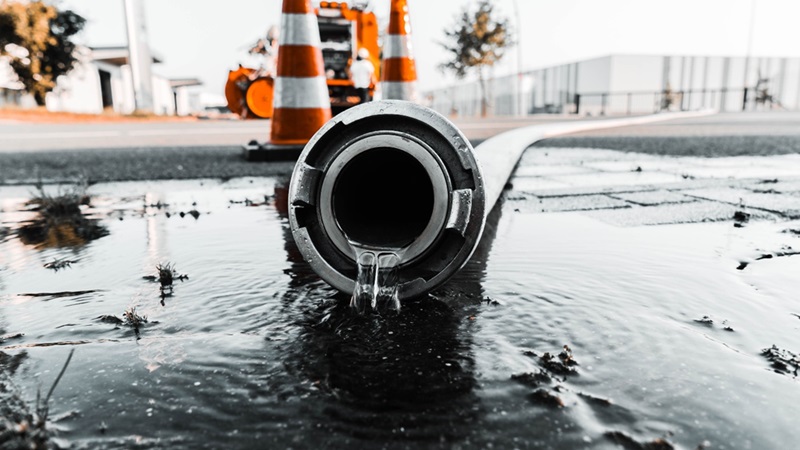The Potential Health Risks of Blocked Drains and How to Safeguard Your Home

Ever wondered just how much damage a blocked drain could cause within your home? Or if there are health risks associated with those occasional blockages that you’ve dismissed as trivial? Could these drainage issues be more than just a minor nuisance and instead be silently wreaking havoc on your family’s health? Well, you’re absolutely right to pose these questions, just as we’re more than ready to provide some eye-opening answers.
Blocked drains, while apparently innocuous, can in fact pose significant health risks to those living in affected premises. They can become fruitful breeding grounds for various pathogens, lead to poor indoor air quality, and cause water contamination. So, understanding the potential dangers and knowing how to combat them should not be taken lightly.
In this blog post, we explore the potential health risks of blocked drains and provide practical strategies to protect your home. We aim to equip our readers with the knowledge needed to make informed decisions, foster healthier living conditions, and enjoy an all-round aesthetically pleasing environment.
The Unseen Health Hazards of Blocked Drains
It’s easy to overlook the gravity of a blocked drain, attributing the issue to pesky plumbing designs or inevitable aging pipes. However, the repercussions extend far beyond these simple explanations.
Firstly, standing water in a blocked drain serves as a breeding ground for dangerous bacteria and disease-carrying insects. These pathogens can easily make their way into your home, posing a risk to everyone within.
Furthermore, the persistent dankness associated with water stagnation can induce mold and mildew growth, which are notorious for causing allergies and respiratory conditions. Blocked drains can emit harmful gases and unpleasant odors, escalating household air pollution beyond acceptable healthy living standards.
Lastly, the water backing up from a blocked drain can cause leaks, leading to water contamination. This aggravates sanitation issues and endangers your home’s cleanliness.
Recognising Early Warning Signs
Detecting the early indicators of a blocked drain is crucial in preventing long-term damage. Common signs include slow drain times, bizarre bubbling noises, water backing up, and foul-smelling odors from your outlets.
Damp spots around your property, unexplained lush vegetation growth, or unexpected increases in your water bill, are additional indicators that your drainage system might be compromised. It’s essential to respond to these warnings immediately to mitigate any potential health risks.
Effective Maintenance to Prevent Blocked Drains
Routine maintenance is essential in preventing drain blockages. A well-administered cleaning at least once a week can protect against buildups. Moreover, proper waste disposal is critical. Non-degradable items such as wipes, nappies, or sanitary products should never be flushed down the drain.
Chemical cleaners, though effective, should be used sparingly due to their corrosive nature. Biological drain cleaners and enzymatic drain cleaners are safer alternatives, as they contain bacteria or enzymes that consume the obstruction without damaging the pipes.

When to Call a Professional Plumber
Despite the best of our efforts, some blockages are stubborn. If you’ve exhausted all home remedies, and the issue persists or worsens, it’s time to contact a professional. Plumbers have specific tools and expertise to not only remove the obstruction but also identify underlying problems that might be causing recurrent issues.
Are There Risks In DIY Drain Cleaning?
Attempted DIY drain unblocking can indeed be risky. Oftentimes, without the right tools and know-how, we may end up causing more damage than we resolve. Aggressive plunging can cause pipes to crack, while improper use of drain snakes can scratch or puncture the pipe walls.
Moreover, over-reliance on chemical cleaners can deteriorate your piping over time. So, while the occasional DIY might help with a minor clog, for substantial blockages it’s wise to rely on a professional plumber.
Impact on Home Value
Ignoring a blocked drain can detrimentally impact your home’s value. Frequent drain issues often indicate an underlying problem that prospective buyers are rarely willing to inherit. Moreover, persistent mold and mildew due to dampness can disappoint buyers, especially those with health concerns.
Conclusion
Neglecting the health risks associated with blocked drains can lead to dire consequences, from bacterial growth, poor indoor air quality to water contamination. To ensure better health and safety for your family, it is essential to recognize early warning signs, perform routine drain maintenance, and know when to seek professional help.
A well-drained home is a healthy home. Armed with this knowledge, you’ll not only ensure a cleaner, more pleasant living environment but also ensure greater longevity for your plumbing system and uphold your home’s value. Remember, prevention is always, without exception, better than cure especially when health and well-being are at stake.